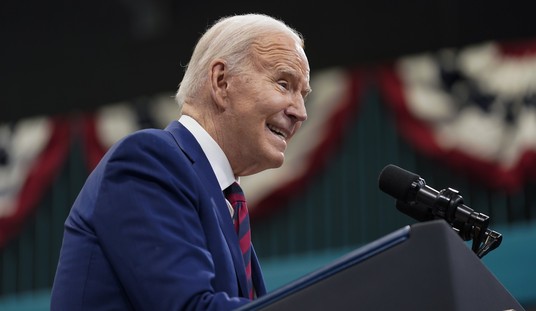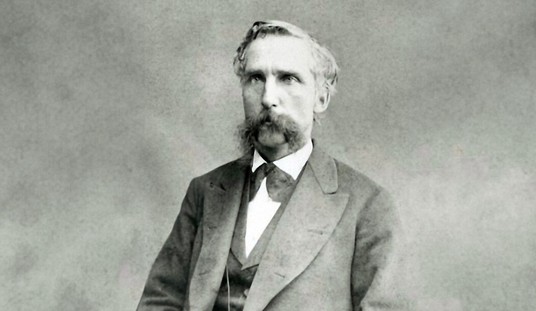Folk wisdom tells us, “Where there’s smoke, there’s carbon emissions.” And where there are carbon emissions, there are internationalists hell-bent on hobbling the American economy in the name of Global Warming. Several recent signs:
- In 2010, the Treasury Department commissioned a National Academy of Science study of the best ways to “green” the tax code. The report was originally due in September, but an extension has been granted until early 2013.
- International banking and financial services giant HSBC Holdings Plc expects the Obama Administration to implement a $20/ton carbon tax (plus 6% per year increase) in its second term, to serve as “revenue enhancement” and as a replacement for the ill-fated Cap-and-Trade scheme.
- The Treasury Department’s Office of Environment and Energy has given the Heisman treatment to a Freedom of Information Act request from the Competitive Enterprise Institute for its emails and economic analysis relative to carbon tax proposals. CEI has filed suit in an effort to compel disclosure.
- Last but not least, the idea of a carbon tax has been embraced by the unlikeliest suspects: ExxonMobil, BP and Shell.
Exxon Mobil Corp. (XOM) is part of a growing coalition backing a carbon tax as an alternative to costly regulation, giving newfound prominence to an idea once anathema in Washington.
Conservative economists and fossil-fuel lobbyists united in 2009 to fend off climate-change legislation that would have established a cap-and-trade mechanism. They are now locked in a backroom debate over a tax on carbon-dioxide emissions that could raise an estimated $100 billion in its first year.
A carbon tax would force electricity producers, refiners and manufacturers to pay a fee for the greenhouse gases they emit. It is gaining interest as lawmakers and President Barack Obama pledge to simplify the corporate tax code and raise revenue to narrow the deficit. The devastation from superstorm Sandy following the wildfires and drought of this summer have also increased concern about global warming.
“It does fit with the Republican idea of cleaning up the tax code, and to have a clean instrument for addressing this problem,” John Reilly, co-director of the Massachusetts Institute of Technology’s Joint Program on the Science and Policy of Global Change, said in an interview. Given this year’s weather disasters, “it’s hard to stand up and say global warming is a hoax,” he said.
How do you explain that? Shell and BP are both are European-based companies. Exxon, while American-based, makes most of its money internationally and is just as sensitive to international politics and perceptions as its giant competitors. Cooperating with a carbon tax would “green” their brands while giving natural gas a decided advantage over coal for power generation. With the shale boom of recent years, natural gas has actually eclipsed coal as the #1 fuel for electricity generation. As Myron Ebell writes at GlobalWarming.org:
Big Oil is coming out of the closet. Exxon Mobil confirmed earlier this month in a Bloomberg Businessweek article that they support a carbon tax. Shell and BP have signed a Climate Price Communiqué that was distributed on 29th November at the eighteenth Conference of the Parties to the United Nations Framework Convention on Climate Change, which is meeting in Doha, Qatar, this week and next.
The most obvious reason why big oil and gas companies would support a huge new tax on their own products is that it would kill coal first. Burning coal emits roughly twice as much carbon dioxide as producing the same amount of energy by burning natural gas. A $20 a ton of CO2 tax would roughly double the current price of coal used for producing electricity. That would provide a huge incentive for utilities to switch to natural gas. Exxon Mobil owns the world’s largest privately-owned reserves of natural gas. Shell and BP also own huge gas reserves. [Emphasis added.]
I’ve been a long-time defender of the oil and gas industry in general, but it’s hard to deny that “Big Oil” (the multinational, vertically-integrated giants) are historically among the first to turn their backs on conservative principles and seek unholy alliances with statist governments. It’s all about rent-seeking and protecting returns.
How could a carbon tax be passed in a Republican-dominated House? A carbon tax combined with reduced corporate income tax rates may appeal not only to liberals and moderates, but also to some muddle-headed and panicky conservatives. Ken Green, an environmental specialist at the American Enterprise Institute adds that part of the appeal to the House majority may be a chance to “green up the conservative brand.”
Don’t be mistaken. Those who pushed for Cap-and-Trade did not throw in the towel, they just changed the subject. A carbon tax is just a Value-Added Tax in disguise. As such it taxes prosperity and success to benefit a voracious welfare state.
Cross-posted at stevemaley.com.













Join the conversation as a VIP Member